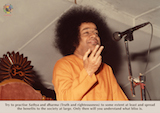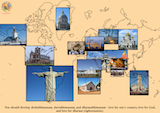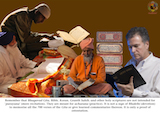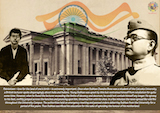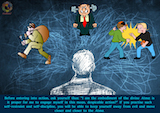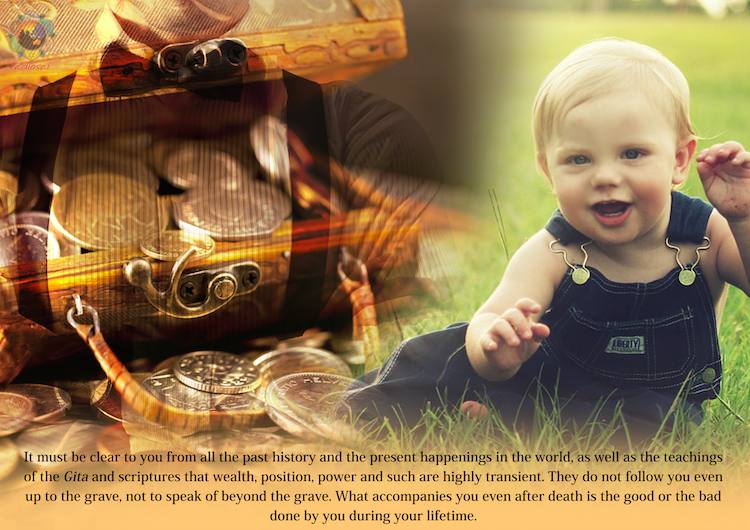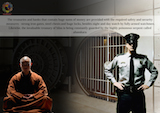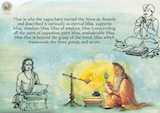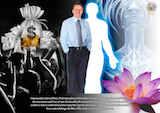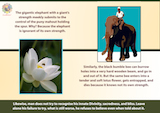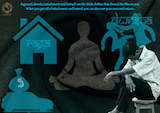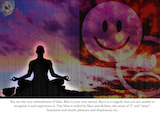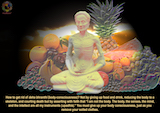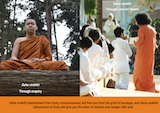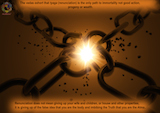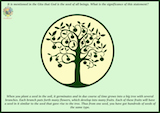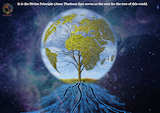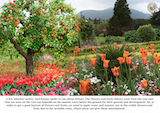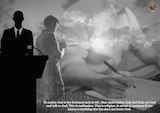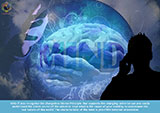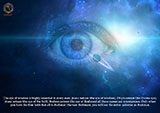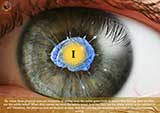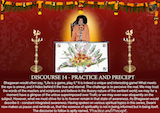|
|
| 'Like' us on Facebook | Follow us: |
Posted on: Feb 12, 2016
SUMMER SHOWERS 1990 ILLUSTRATED (Part 14)
SSI - 13.02.2016 |
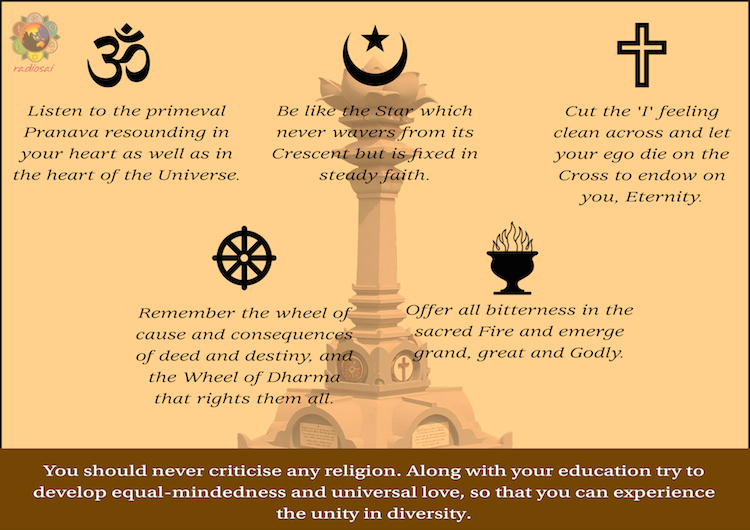 |
Bhagawan would often say, “My life is My Message.” A simple understanding of this declaration is that He lives every day the message He teaches. One other meaning one could draw is that, ‘His message is His life’! That is, the message that Bhagawan gave is the very life essence of His descent as an Avatar. And the fact that even today, we can go through the thousands of discourses He delivered is in itself a sign of His benediction upon us.
And among the discourses Baba delivered, those that He gave as part of the Summer Course series are even more special. This is because often these are a set of discourses centered around a specific theme, elaborated gradually. These are a treasure mine for any sincere spiritual seeker. So in our attempt to encourage more people to dwell deeply into these divine discourses, and contemplate on the message therein, we begin with prayers, a new series today.
In March 2013, with the same motive in mind we began a radio series entitled Shravanam Mananam Nididhyasanam. In this live show we began going through the 1990 Summer Course discourses, and needless to say we were overwhelmed by their profundity. So we now wish to offer these discourses to our readers, in this new format. We will try to pictorially depict the messages in these discourses in the form of a poster. These will be sent everyday to all our Sai Inspires subscribers as a link along with the Thought for the Day (If you are not a subscriber yet, please do subscribe). And after these posters are dispatched, they will be added to this page, on the right hand side. You can view, download and even print and use them if you so wish. Also given below is an abridged version of the discourse as published in the Summer Showers 1990 book.
We pray to Bhagawan to bless and guide this new endeavour of ours. And we invite you all to partake of and imbibe our Master’s ethereal message.
WHAT IS FREEDOM? Dear Students! The world in which we live is impermanent. Youth comes in the middle and goes in the middle. It is not a sign of the educated to gloat over their impetuous and turbulent youth. As for wealth, it is as momentary as the lightning. Wife and children join you midstream and leave you midstream in the river of life. Before marriage, who was the wife and who was the husband? So also, before birth, who was the mother and who was the child? Wife, children and other relatives are like the travellers who meet and depart over night from a caravanserai. All these are transient. What then is permanent? Only two things: dharma (righteousness) and keerthi (fame). As the scriptures have declared: “Yat drisyam tat nasyam (whatever is visible is perishable). The entire manifested universe will be washed away by the river of time. The eye that sees and the world that is seen—both are short-lived. Without developing the jnana chakshu (the eye of wisdom), if a man is content with the charma chakshu (the physical eye) only, he is no better than the birds and beasts. Human life is invaluable, purposeful, and worth experiencing and enjoying. For the fulfillment of such a precious and sacred human life, the acquisition of Atma jnana (Selfknowledge) is highly indispensable. The scriptures proclaim, on the one hand, that among all beings in the animal kingdom, it is a rare privilege to be born as a human being. They also declare on the other hand, that a man devoid of jnana is equal to a brute. The physical eyes of man can see only the gross external world but not the inner divinity, which is highly subtle. As a matter of fact, the physical eyes cannot even see all the gross things; for example, the eyes cannot see themselves without the aid of a mirror; they cannot see some parts of the very body to which they belong, for example the head and the back. So, when these physical eyes are incapable of seeing even the entire gross body to which they belong, how can they see the subtle mind? When they cannot see even the subtle mind, how can they see the Atma, which is the subtlest of all? Therefore, the physical eyes are helpful to man, only for carrying his mundane activities in the phenomenal world The eye of wisdom is highly essential to every man. Jnana netram (the eye of wisdom), divya netram (the divine eye), Atma netram (the eye of the Self), Brahma netram (the eye of Brahman) — all these names are synonymous. Only when you have the firm faith that all is Brahman (Sarvam Brahman), you will see the entire universe as Brahman. That is why the scriptures have exhorted: fill your vision (dhristi), with jnana (wisdom), and you will see the srishti (creation), filled with Brahman (The Supreme Absolute). The colour of the entire Prakruthi (Nature) depends upon the colour of the glasses through which the physical eyes look at it. All things that are visible are subject to change. However, the substratum of all this
changing phenomena is the changeless Divine Principle (Brahman), just as the stationary
road supports the movement of the fast running buses and cars. Only if you recognise the
changeless Divine Principle that supports the changing universe can you easily understand
the entire secret of the universe. Your mind is the cause of your inability to understand
the real nature of this world. The characteristic of the mind is pravritthi—external
orientation. Man is wasting his life, night and day, for acquiring external things like
houses, lands, vehicles, wealth and other so-called “properties” which, in fact, are not “proper ties”. Is it for the sake of these trifles that man is born? No. No. No. To realise
God is his foremost task in life. Man must realise God, feel God, see God and talk to
God. This is realisation. This is religion. It serves no purpose if one knows everything
else but does not know God. Now, according to the Gita, God is the seed that has given rise to the tree of this vast universe. Each country is a branch of this tree. In each branch there are a number of fruits, namely, various kinds of living beings, each of which carries within it the seed of Divinity. It means that in every being, God is there in the form of the spirit or Atma. Students of today are not making effort to recognise this subtle truth behind the gross universe. They spend all their time for specialising in one of the subjects like physics, chemistry, zoology, botany, mathematics, commerce, etc. so that they may earn their livelihood, never giving any thought to the goal of life, which is more important than making a living. According to one of the most important mantras in the Veda, immortality can be obtained only by thyaga (renunciation) but not by good action, progeny, or wealth. etc. But what exactly is renunciation? It does not mean giving up one’s wife and children, or house and other properties. What actually is your bondage? It is the delusion of your identification with the body. You must give up the false idea that you are the body and imbibe the truth that you are the Atma. Only then alone can you achieve liberation (moksha). Deha virakthi (detachment from body consciousness) will free you from the grief of bondage, and Daiva asakthi (attachment of God) will give you the bliss of moksha and merger with God. How to get rid of deha bhranthi (body-consciousness)? Not by giving up food and drink, reducing the body to a skeleton, and courting death but by asserting with faith that “I am not the body. The body, the senses, the mind, and the intellect are all my instruments (upadhis).” You must give up your body consciousness, just as you remove your soiled clothes. In the debate that took place the day before yesterday, it was argued that one has the freedom to eat when hungry and drink water when thirsty. But how can you call this freedom? You are forced to eat food to appease your hunger and drink water to quench your thirst. Here you are simply following the law of nature. There is no question of freedom in this. It is only bliss that is connected with freedom. How can you have that bliss? Can you get it from the body or the mind? Not at all. The bliss that you may derive through the body and mind is but momentary. You have not been born just for this kind of transient and trivial joys. You have yourself put on this human body to enjoy everlasting bliss. All things happen according to the divine will (Daiva sankalpam). By your own effort you cannot achieve anything. The day before yesterday, I told you how, in several instances, men could not achieve things in spite of all their efforts and how success came seeking those who had not tried for it. It is only due to ahamkara that you wrongly appropriate to yourself both doership and enjoyership (kartritwa and bhoktritwa). You are the very embodiment of bliss. Bliss is your very nature. But it is a tragedy that you are unable to recognise it and experience it. This bliss is veiled by likes and dislikes, the sense of “I” and “mine”, hesitation and doubt, pleasure and displeasure etc. Raga and dwesha (attachment and hatred) are the thick clothes that shroud the bliss in you. When you get rid of attachment and hatred, you can discover your own real nature. How strange and foolish it is that despite yourself being the very embodiment of bliss, you are searching for bliss elsewhere! Although everything is within you, you are unfortunately running after petty desires and silly sensual pleasures in the phenomenal world. What is the reason for this mad race? Ignorance of the truth that you are yourself the source of all bliss. Students! You know that the gigantic elephant with a giant’s strength meekly submits to the control of the puny driver holding the spur. Why? Because the elephant is ignorant of its own strength. Similarly, the black bumble bee can burrow holes into a very hard wooden beam, and go in and out of it. But the same bee enters into a tender and soft lotus flower, gets entrapped, and dies because it knows not its own strength. Likewise, man does not try to recognise his innate divinity, sacredness, and bliss. Leave alone his failure to try, what is still worse, he refuses to believe even when told about it. Students! If you put forth the required effort, you will definitely experience the truth of your own divinity and bliss. The musk-deer, not knowing that the musky fragrance emanates from its own navel, roams about restlessly all over the forest, in search of the source of that smell. At last it becomes very tired and lies down in the shade of a tree for taking rest. While lying down, it keeps its nose near its navel, and then recognises that the fragrance is coming out of its own navel. And now it says to itself, “Alas! what a great fool am I! Not knowing that I myself am the source of the fragrance, I was searching in vain all through the forest, putting myself to unnecessary trouble!” This is the nature of ignorance. This exactly is the plight of man too. Nityanandam (eternal Bliss), Brahmanandam (infinite Bliss), and Adwaithanandam (non-dual bliss) are the very nature and form of man. But, lured by the momentary sensuous worldly pleasures, man is unable to seek, to understand and to enjoy this supreme divine bliss. Unlike the so-called bliss derived from material things, the bliss of the Atma is never tainted by sorrow. If you fill up a vessel with payasam, a sweet made by boiling a cereal in milk with sugar, and then make several holes in the vessel, what comes out of any or all of these holes will be only the sweet payasam. Similar is the case with Atmananda (the bliss of the Atma), which manifests itself in various ways. That is why the sages have named the Atma as Ananda and described it variously as eternal bliss, supreme bliss, absolute bliss, bliss of wisdom, bliss transcending all the pairs of opposites, pure bliss, unshakeable bliss, bliss that is beyond the grasp of the mind, bliss which transcends the three gunas, and so on. When such priceless treasure of bliss is readily available within you, why should you foolishly run after this phenomenal world, which brings you trials and tribulations, sufferings and sorrow? The treasuries and banks that contain huge sums of money are provided with the required safety and security measures—strong iron gates, steel chests, and huge locks, besides night and day watch by fully-armed watchmen. Likewise, the invaluable treasury of bliss is being constantly guarded by the highly poisonous serpent called ahamkara. But what is the cause of this ahamkara? Is it wealth, strength, position, power, or learning? No, none of these. The root cause of ahamkara is deha bhranthi (mistaken identification of oneself with his body). As for the other things like wealth, position, power, etc., it must be clear to you that all the past history and the present happenings in the world, as well as the teachings of the Gita and scriptures, reveal that all these are highly transient. They do not follow you even up to the grave, not to speak of beyond the grave. What accompanies you even after death is the good or the bad done by you during your lifetime.
Patriotism—love for the land of one’s birth—is extremely important. Once when Subhas Chandra Bose was a student of the Calcutta University, a British Lecturer spoke disparagingly about India and Indians. Young Subhas Chandra was upset by this but restrained himself from retaliation for quite some time. However, when he found the Lecturer exceeding the limits of decency and decorum, he could not contain himself any longer. He sprang to his feet, swiftly jumped across the benches and pouncing upon the Lecturer, thrashed him with his shoe. In a few minutes the news spread like wild fire throughout the University Campus. The authorities held an emergency meeting and passed orders debarring Subhas from the University for a period of five years. Thus Subhas sacrificed his education for the sake of upholding the honour of his motherland. Consequently his father sent Subhas to London for his higher studies. There, too, Subhas evinced his sense of patriotism. He had distinguished himself in his studies there and hence ever had good opportunities to stay back in London, had he been interested in his self-advancement. But prodded by his patriotic fervour, Subhas returned to India after passing I.C.S. (Indian Civil Service) examination with a high rank and entered politics instead of Government service. Students should follow his example and sacrifice their “swartha” (selfish interest) for parartha (the welfare of others) and attain Paramartha (the supreme goal of life). Remember that Bhagavad Gita, Bible, Koran, Granth Sahib, and other holy scriptures
are not intended for “parayana” (mere recitation). They are meant for acharana (practice).
It is not a sign of Bhakthi (devotion) to memorise all the 700 verses of the Gita or
give learned commentaries thereon. It is only a proof of ostentation.
|
- Team Radio Sai
What do you think about this series? Please let us know by writing in to h2h@radiosai.org. Do not forget to mention your name and country.




